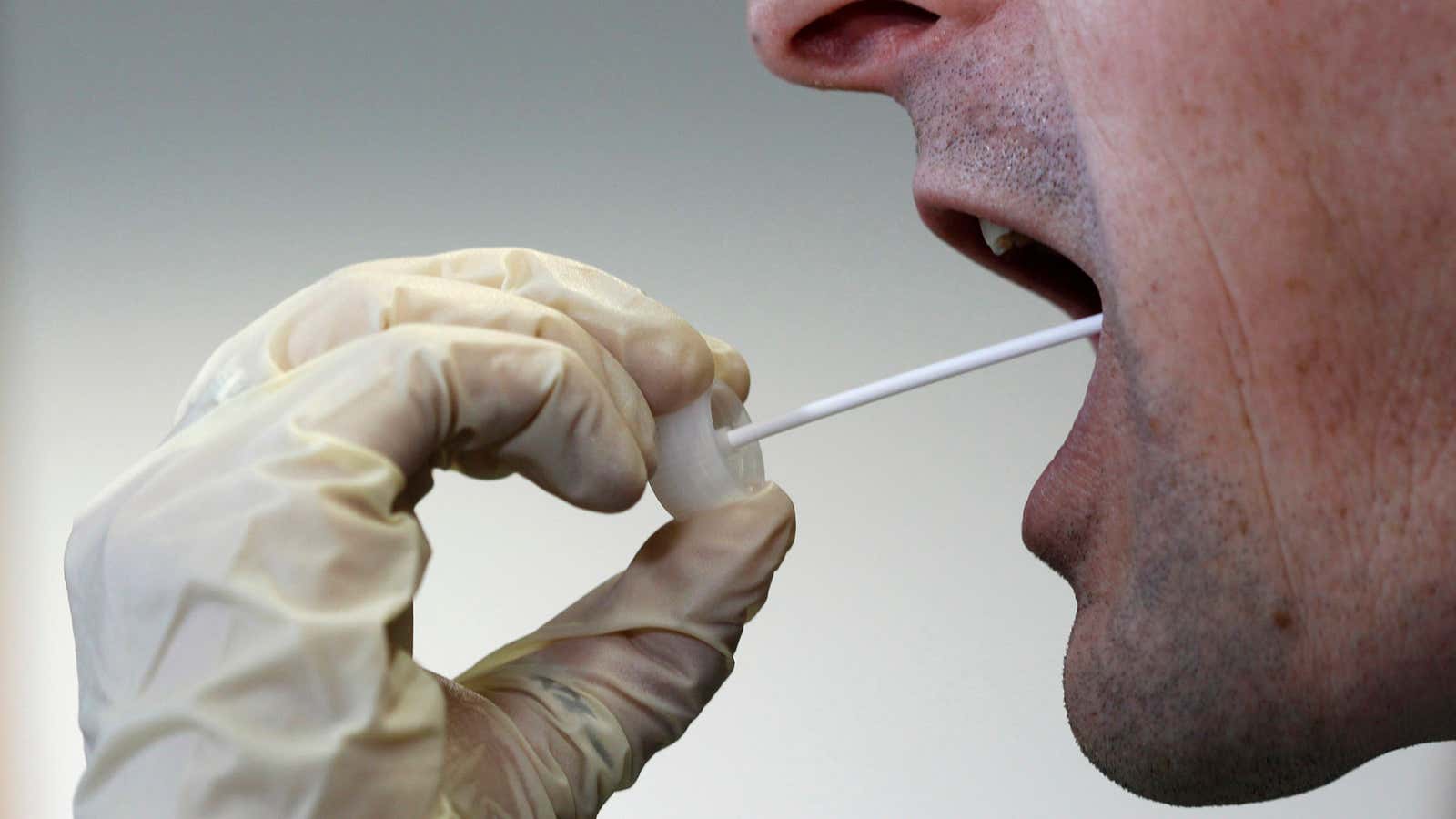Your genes are like the cards dealt to you in a poker game. So it stands to reason that you’d want to see those cards, rather than play blind. No wonder then that, as soon as the technology became relatively affordable, genetic tests gained popularity.
And yet, even those who get the chance to peek at their genetic makeup don’t seem to live their lives much differently, researchers have found. Why is that?
Depending on how deep you want to dive in your DNA data, commercial tests are available from $100 to $6,000. Once you have the data, genetic counselors can explain whether your genes put you at a higher risk for certain diseases.
One might assume that this information would have a major effect—either positive or negative. The hope is that knowing you are prone to, say, diabetes or lung cancer, would make you be more physically active or stop smoking to offset the increased risk. Meanwhile, knowing an incurable disease is likely in one’s future could make a person anxious or depressed.
But neither the positive nor negative effects seem to have materialized. Researchers from the UK looked at 18 studies conducted until 2015 involving more than 6,000 people. In each study, researchers recorded the change in behavior on a specific activity—including smoking, diet, or physical activity—after a person had completed a genetic test. Their results, published the British Medical Journal, show that there was little to no change in behavior.
The new review is an update to an older one, which took into account all such studies conducted up until 2010 and had found the same result. In the intervening period, genetic tests have only gained popularity, but the outcome remains the same. Of course, it’s still early days. The researchers include a caveat that, even after filtering through nearly 10,000 studies, those they included in the review remain of “low quality.”
We already know that quitting smoking, eating a healthier diet, and exercising can reduce the risk of various diseases—but that information is not enough to make everyone follow those basic steps. “Behavioral change is hard, and throwing genetic information of low predictive value at the problem isn’t going to change that,” Robert Nussbaum of the University of California at San Francisco told Quartz.
Even if we assume that genetic testing has no impact on people’s day-to-day behavior, there is evidence that it can motivate some people to undergo medical procedures they may not have considered before. The actress Angelina Jolie, for example, famously underwent the removal of her breasts and ovaries because she carries the BRCA1 gene, which is known to significantly increase the risk of breast and ovarian cancer.
“The absence of effect shown in this meta-analysis is not surprising: the people most likely to act on genetic information are few in number and hence we tend not to find effects on average,” Brian Zikmund-Fisher of the University of Michigan told Quartz.
That is why even the evangelists of the technology aren’t primarily looking to change behavior. They argue, however, that genetic tests are still going to be an important part of our medical future. For one thing, there’s a tiny fraction of people for which such tests can reveal significantly higher likelihood of getting disease—and for them, the information offers a chance to get preemptive medical help. And beyond that, the real impact of genetic tests will be seen in areas such as drug discovery, in-vitro fertilization, and personalized cancer treatment.




